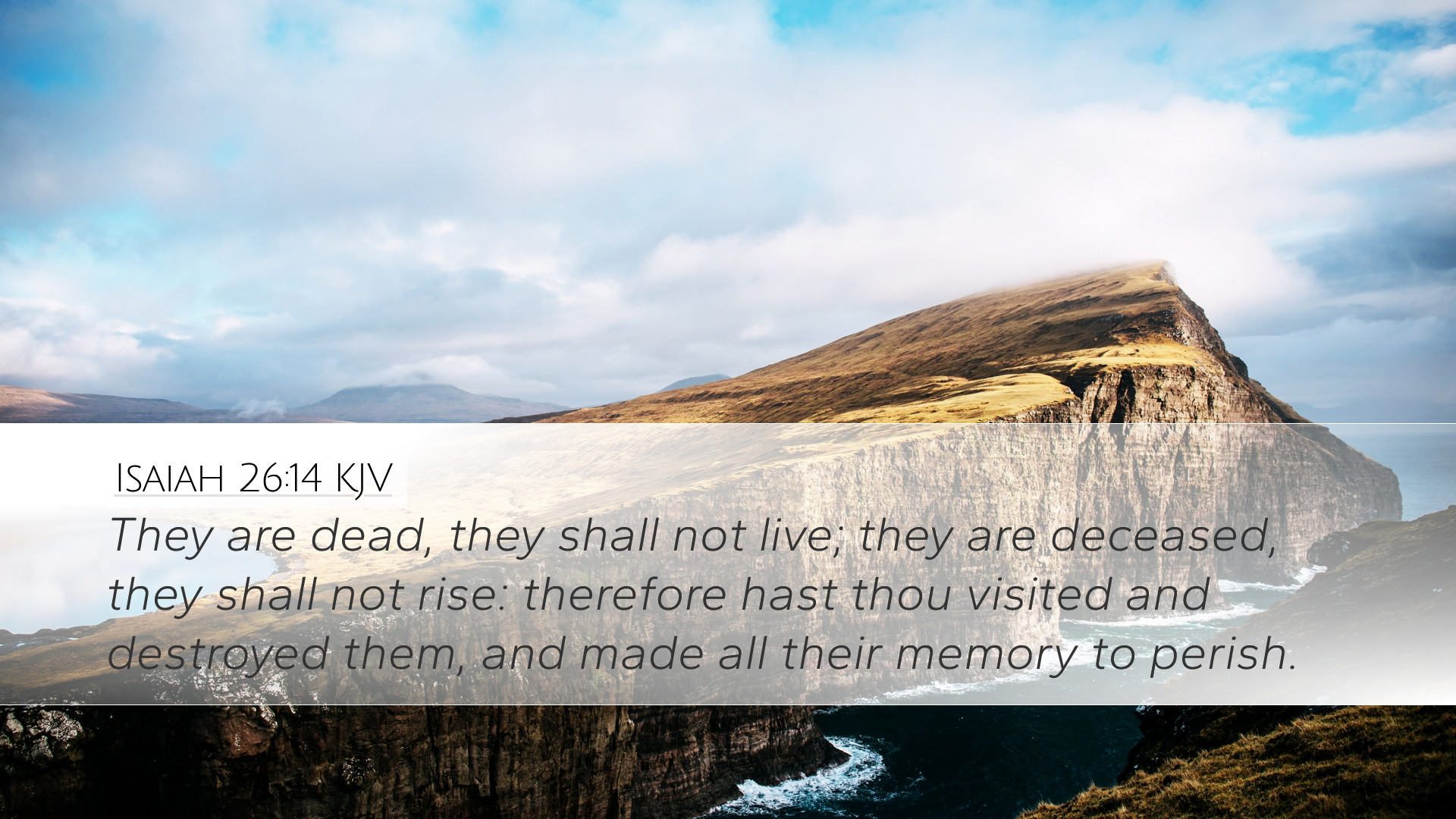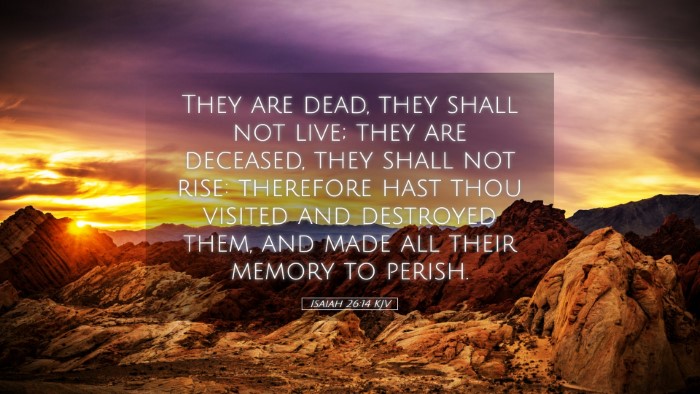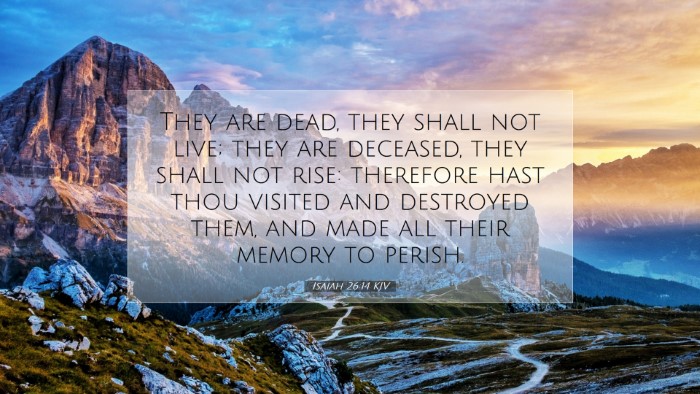Isaiah 26:14 Commentary
Verse: “They are dead, they shall not live; they are deceased, they shall not rise: therefore hast thou visited and destroyed them, and made all their memory to perish.”
Contextual Background
The book of Isaiah is rich in prophecy and poetry, addressing both immediate historical circumstances and future redemptive plans of God. In chapter 26, there is a dramatic contrast between the fate of the righteous and the wicked, capturing themes of judgment and hope.
Analysis of Isaiah 26:14
This verse serves as a solemn declaration regarding the fate of the wicked. The prophet Isaiah speaks to the certainty of divine judgment, emphasizing that those who oppose God ultimately face a finality in death and decay.
Insights from Commentators
-
Matthew Henry
Henry emphasizes the certainty and irrevocability of divine judgment. He notes that the “dead” refer to those who, through their opposition to God, have sealed their own fate. The repetition of "not live" and "not rise" signifies a bleak and permanent state, contrasting the hope of resurrection for the righteous.
-
Albert Barnes
Barnes elaborates on the imagery of death and its implications. He states that the phrase “therefore hast thou visited and destroyed them” indicates God's active role in judgment. It also showcases His sovereignty over life and death, assuring that the wicked’s memory will perish, devoid of any legacy or redemption.
-
Adam Clarke
Clarke discusses the metaphorical use of “memory” as it pertains to the wicked. He implies that their actions lead to their erasure from history, as their legacies are eclipsed by their rebellion against God. Clarke brings forth the idea that the memories of the righteous, in stark contrast, will endure through the ages.
Theological Implications
This verse raises significant theological questions about judgment, mercy, and the ultimate fate of humanity. For pastors and theologians, it serves as a reminder of the seriousness of sin and the justice of God. Here are some key implications:
- Judgment: The permanence of God’s judgment illustrates the seriousness of living in opposition to His will. The imagery encourages believers to reflect on the weight of their actions and the importance of righteousness.
- Hope for the Righteous: Although the focus here is on the wicked, there is an implicit affirmation of hope for those who follow God. This juxtaposition motivates the faithful to live a life that results in eternal legacy.
- Divine Sovereignty: The verse showcases God’s authority over life and death, reinforcing the notion that all belong to Him and will answer for their choices.
Practical Applications
For pastors and students of the Bible, Isaiah 26:14 serves as a source of guidance in preaching and teaching:
- Call to Repentance: This passage can be used to remind congregants of the importance of repentance and the consequences of sin.
- Encouragement for Perseverance: It encourages believers to persevere in faith, knowing that the righteous will ultimately be vindicated, while the wicked face destruction.
- Memory of the Righteous: Encourage congregants to focus on leaving a legacy that honors God, contrasting the fate of the wicked who are forgotten.
Conclusion
Isaiah 26:14 is a profound verse that encapsulates themes of judgment, the fate of the wicked, and the ultimate sovereignty of God. It serves as a reminder that while judgment may seem delayed, it is assured. The insights from respected commentators underline the importance of living a life aligned with God’s will, aiming for a legacy that echoes through eternity.


